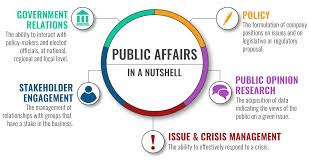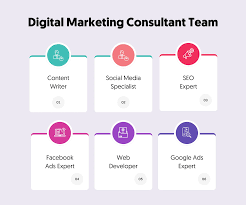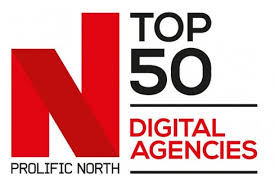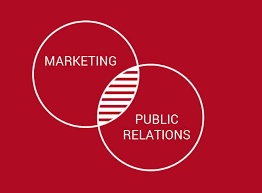The Essential Role of the Industry Expert in Today’s Business Environment
The Importance of Industry Experts in Today’s Business Landscape
In today’s fast-paced and competitive business environment, the role of industry experts has become more crucial than ever. Industry experts are individuals who have extensive knowledge, experience, and insights into a specific sector or field. They play a vital role in shaping industry trends, providing valuable guidance to businesses, and driving innovation.
One of the key benefits of working with industry experts is their deep understanding of the market dynamics and trends. Their expertise allows businesses to stay ahead of the curve, anticipate changes in the industry, and make informed decisions that can drive growth and success.
Industry experts also bring a fresh perspective to business challenges. Their wealth of experience enables them to offer creative solutions to complex problems and identify opportunities that may not be apparent to others. By tapping into their knowledge and insights, businesses can gain a competitive edge and differentiate themselves in the market.
Furthermore, industry experts often have established networks within their respective fields. These connections can be invaluable for businesses looking to forge partnerships, collaborations, or strategic alliances. By leveraging the relationships of industry experts, companies can expand their reach, access new markets, and unlock new opportunities for growth.
Another significant advantage of working with industry experts is their ability to provide mentorship and guidance to emerging professionals in the field. By sharing their knowledge and experiences, industry experts can inspire the next generation of leaders and contribute to the overall development of the industry.
In conclusion, industry experts play a vital role in driving innovation, shaping trends, and guiding businesses towards success in today’s rapidly changing business landscape. Their expertise, insights, and networks are invaluable assets that businesses can leverage to stay competitive and achieve their goals.
Understanding Industry Expertise: FAQs on Becoming and Engaging with Experts
- How do I become an industry expert?
- What is the meaning of industry expertise?
- How do I find an industry expert?
- How do you position yourself as an industry expert?
- What do you call an industry expert?
- Why work with industry experts?
- What is an industry professional?
- What is the role of industry expert?
How do I become an industry expert?
Becoming an industry expert requires dedication, continuous learning, and a proactive approach to building your knowledge and expertise in a specific field. Start by immersing yourself in the latest industry trends, developments, and best practices through reading industry publications, attending relevant conferences and workshops, and networking with other professionals in the field. Seek out opportunities to gain hands-on experience and showcase your expertise through writing articles, giving presentations, or participating in panel discussions. Consistency is key – stay informed, keep learning, and be willing to adapt to changes in the industry to establish yourself as a trusted authority and ultimately become recognised as an industry expert.
What is the meaning of industry expertise?
Industry expertise refers to a deep level of knowledge, experience, and understanding of a specific sector or field within the business world. An industry expert possesses in-depth insights into the trends, challenges, best practices, and opportunities within their industry. They have a comprehensive understanding of the market dynamics, key players, regulations, and emerging technologies that impact their sector. Industry expertise enables individuals to provide valuable guidance, make informed decisions, drive innovation, and contribute significantly to the growth and success of businesses operating within that particular industry.
How do I find an industry expert?
When seeking to find an industry expert, there are several effective strategies you can employ. One common approach is to leverage professional networking platforms such as LinkedIn, where you can search for individuals with expertise in your specific industry. Additionally, attending industry conferences, seminars, and workshops can provide opportunities to meet and connect with industry experts in person. Another valuable method is to seek recommendations from colleagues, mentors, or business associates who may have worked with industry experts in the past. By actively engaging with professional networks and seeking referrals, you can identify and connect with the right industry expert who can provide valuable insights and guidance for your business needs.
How do you position yourself as an industry expert?
Positioning yourself as an industry expert requires a strategic approach that involves showcasing your knowledge, experience, and credibility within your field. To establish yourself as an industry expert, it is essential to consistently create and share high-quality content that demonstrates your expertise, such as articles, blog posts, whitepapers, or videos. Engaging with your audience through speaking engagements, webinars, podcasts, or social media platforms can also help build your reputation and visibility. Networking with other professionals in the industry, obtaining certifications or qualifications, and seeking opportunities to contribute to relevant publications can further enhance your credibility as an industry expert. By consistently delivering valuable insights and demonstrating thought leadership in your field, you can effectively position yourself as a trusted authority and go-to resource for industry-related knowledge and expertise.
What do you call an industry expert?
An industry expert is typically referred to as a professional who possesses extensive knowledge, experience, and insights in a specific sector or field. These individuals are recognised for their in-depth understanding of industry trends, market dynamics, and best practices within their domain. Industry experts are often sought after for their ability to provide valuable guidance, innovative solutions, and strategic direction to businesses looking to navigate challenges and seize opportunities within their industry. Their expertise and credibility make them trusted authorities whose opinions and advice are highly regarded by peers, clients, and stakeholders alike.
Why work with industry experts?
Working with industry experts offers businesses a multitude of benefits that can significantly impact their success. Industry experts bring a wealth of knowledge, experience, and insights that can help businesses navigate complex challenges, anticipate market trends, and make informed decisions. By collaborating with industry experts, companies gain access to specialized expertise that can drive innovation, enhance competitiveness, and accelerate growth. Additionally, industry experts often have established networks within their field, providing valuable connections and opportunities for strategic partnerships. Overall, working with industry experts is a strategic investment that can yield long-term benefits and position businesses for sustained success in today’s dynamic business landscape.
What is an industry professional?
An industry professional, often referred to as an industry expert, is an individual who possesses extensive knowledge, experience, and expertise in a specific sector or field. These professionals have a deep understanding of the industry dynamics, trends, best practices, and challenges that businesses face within that particular sector. Industry professionals play a crucial role in providing valuable insights, guidance, and solutions to help businesses navigate the complexities of their industry effectively. Their expertise and experience make them valuable resources for companies looking to make informed decisions, drive innovation, and achieve success in their respective industries.
What is the role of industry expert?
The role of an industry expert is to provide invaluable knowledge, insights, and guidance within a specific sector or field. Industry experts leverage their extensive experience and expertise to help businesses navigate challenges, identify opportunities, and make informed decisions. By staying up-to-date with industry trends and developments, industry experts play a crucial role in shaping the direction of the sector and driving innovation. Their deep understanding of market dynamics enables them to offer strategic advice, mentorship, and solutions that can help businesses thrive in a competitive environment. Overall, industry experts serve as trusted advisors who contribute to the growth and success of businesses by sharing their expertise and leading by example.











